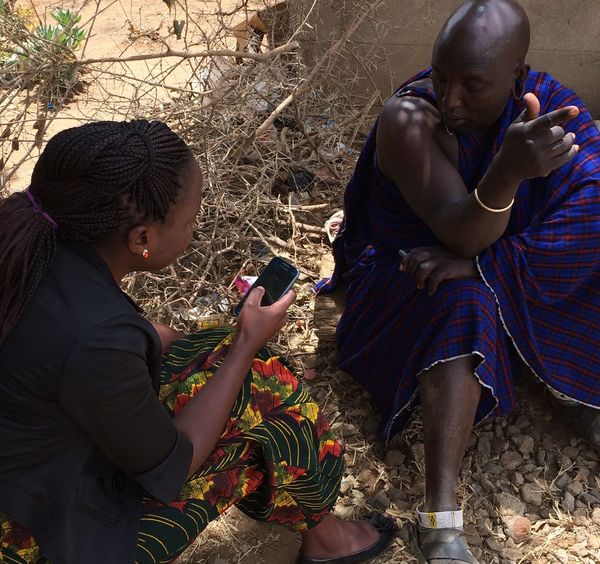The Notre Dame Initiative for Global Development (NDIGD) is partnering with Results for Development (R4D) on a USAID-funded project focused on implementing a rapid feedback system to improve development program outcomes.

Designing, evaluating, and replicating successful programs requires a nuanced understanding of the problem being addressed, viable ideas for solutions, and a familiarity with context. But above all else, it requires a commitment to learning so that lessons from past efforts can be applied quickly and result in adaptive programs whose potential for impact is always increasing.
Traditional monitoring and evaluation approaches serve important purposes, but can fall short when it comes to helping program managers make timely decisions about program design and direction that are supported by evidence.
NDIGD is at the forefront of using technology to collect data. Leveraging University of Notre Dame expertise through its Information and Communication Technologies for Development (ICT4D) Specialists, and the Center for Research Computing, NDIGD offers unique approaches to monitoring and evaluation that fuse together technologies such as Global Positions Systems (GPS), Remote Sensing (RS), and Geographic Information Systems (GIS) with fundamental expertise in monitoring and evaluation. Where applicable, NDIGD projects use smartphones or tablets to collect data and GPS coordinates to track respondents.
To address the need for systematic approaches to learning and adaptation, the consortium led by R4D has partnered with USAID on a three-year, up to $17 million dollar project: Rapid Feedback Monitoring, Evaluation, Research, and Learning (MERL).
Rapid Feedback MERL builds on the extensive MERL experience and expertise of consortium members, which in addition to NDIGD, include Abt Associates and Mathematica Policy Research. The concept was developed jointly by the consortium members through a co-creation process facilitated by USAID earlier this year. R4D will lead the consortium to implement the Rapid Feedback MERL approach with up to 15 programs over the next three years.
The project is inspired in part by R4D’s “Learning Lab” portfolio, a set of engagements in which R4D supports programs to first incorporate structured experimentation into ongoing implementation and then use monitoring and evaluation techniques to make design decisions based on the results of the experimentation. This process is designed to generate rapid feedback on what is working and what is not, so that program managers can make timely and informed decisions.
Notre Dame faculty and researchers involved in this significant effort include Sara Sievers, Keough School for Global Affairs associate dean of policy and practice, Michael Coppedge, professor of political science, T. J. D’Agostino, associate director of the Haitian Catholic Education Initiatives with the Institute for Educational Initiatives, and Tom Marentette, lead architect of DigitalND with the Office of Information Technology, and Chris Sweet, associate director at the Center for Research Computing. NDIGD experts contributing to this project include monitoring and evaluation specialists Danice Brown and Tushi Baul, and Juan Carlos Guzman, director of monitoring and evaluation.
"The U.S. Global Development Lab is excited to partner with a diverse group of organizations on Rapid Feedback MERL to implement and test innovative approaches to measure development impact, enhance learning, and increase our ability to improve the lives of the poorest and most vulnerable around the world," said Ann Mei Chang, Executive Director of the U.S. Global Development Lab. "Together, we aim to close a gap in the development community's decision cycle by improving the adaptive capacity and efficacy of development interventions."
The unique characteristics of the Rapid Feedback MERL approach include:
- It addresses real questions program managers need to make decisions
- It can and should be implemented in partnership with program managers
- Its results are timed to align with programs’ decision-making timelines
- It facilitates simultaneous testing of multiple program implementation approaches, resulting in the identification of a most promising option
- It generates evidence quickly to facilitate ongoing improvement
- It balances a commitment to rigorous methods with a thoughtful understanding of the time, cost, and capacity available
The University of Notre Dame Initiative for Global Development promotes human development and dignity among people worldwide through applied innovations, impact evaluation, education, and training that helps build just and equitable societies. It is an integral part of Notre Dame’s new Keough School of Global Affairs.